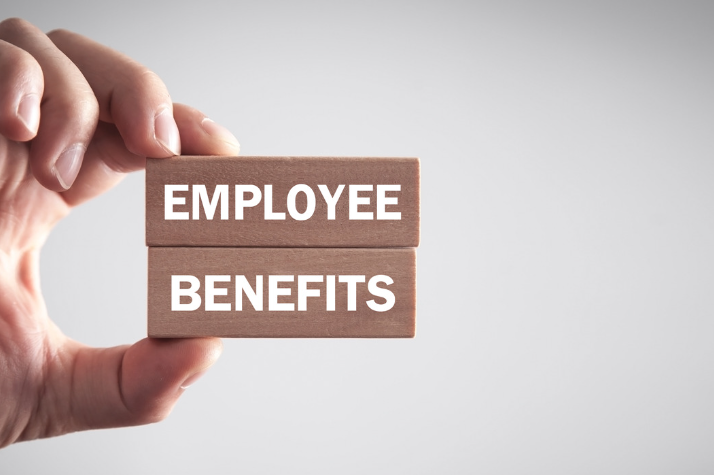How to Manage Employment Concerns When an Employee Passes Away
Losing an employee to death can be an unexpected and difficult experience for an organization. In addition to the emotional strain, administrative matters may need to be addressed, such as managing the deceased employee's payroll. Navigating this delicate terrain requires a blend of empathy, compliance with legal obligations, and communication with the affected parties. Read more as we guide you through the critical steps to prepare your organization to respond efficiently and make it easier for the employee’s family to obtain the information they need.
Notify Relevant Parties
The first step is to notify the necessary parties, including your Human Resources department, your payroll department or professional payroll provider, and other key parties. Sensitivity is crucial during this process.
Send Your Sympathy to the Employee’s Family
If the deceased employee has a designated emergency contact, reach out to them with compassion and offer support. It is a thoughtful gesture to mail a sympathy card on behalf of the organization. Depending on your organization’s policy, contemplate sending flowers or a planter or donating to a cause if requested in the employee’s obituary.
Consider Your Employees
Communicate to your employees if you will allow time off work to attend funeral services. Be sure to explain if time off will be paid or unpaid. Depending on the size of your organization and the situation, you may consider closing for part or an entire day so that all employees can have the opportunity to attend the funeral. If you decide to close, be sure to notify your customers/clients ahead of time.
Terminate Employment/Organization Access and Recover Company Property
Officially terminate the deceased employee's record in the payroll system and update the necessary records to trigger final payments and discontinue benefits. Be sure to stop all security access to the organization’s systems. Also check to see if the employee was issued any property or equipment that needs to be returned to the organization and contact the employee’s family to arrange for collection. It is important to be thorough in documenting the actions in this step for future reference.
Understand Legal and Tax Obligations
Familiarize yourself with federal, state, and local regulations related to payroll after an employee's death. These may include the timing of final wage payments/benefits as well as tax implications of the payments. Compliance is essential to avoid legal issues and ensure a smooth transition. If you have a professional payroll provider, they will be able to help with this step.
Obtain the Employee’s Beneficiary Information
If the deceased employee is due final payroll wages, you will need to obtain the following pieces of information about the beneficiary:
- Beneficiary name (or Estate name)
- Beneficiary Social Security Number (or Estate Taxpayer Identification Number)
- Beneficiary address (or Estate address)
- Beneficiary date of birth
- Beneficiary/Estate direct deposit bank routing number, account number, and type of account (if final payments will be paid via direct deposit rather than with a live check)
-
If the wages are being paid in the same year that the employee passed away, the wages are issued to the employee’s beneficiary/estate, but the wages are taxable for Social Security and Medicare under the employee’s name. Part of the wages will be reported on the beneficiary's Form 1099-MISC, and part of the wages will be reported on the employee’s Form W-2.
-
If the wages are being paid in the year after the employee passed away, then the wages are issued to the employee’s beneficiary/estate, but no Social Security and Medicare taxes are required in the employee’s name. The wages will only be reported on the beneficiary's Form 1099-MISC.
Process Final Payroll Payments
Calculate the deceased employee's final wages, including any accrued vacation or paid time off. Ensure that all due payments, such as bonuses or commissions, are accurately calculated and processed. Ahola suggests that you consult with your payroll department, professional payroll provider, or legal or financial professionals to ensure that final wages are processed in compliance with all applicable laws.
Coordinate Benefit Payouts and Insurance
Review the employee's benefits package, including life insurance, health insurance, and retirement plans. Coordinate with insurance providers and benefits administrators to process any applicable payouts or claims. Keep the beneficiaries informed about the process and provide them with any needed third-party contact information.
Communicate with the Family
Throughout the process, follow up with the family of the deceased employee with compassion and empathy. Clearly explain the steps you have taken with payroll and benefits, so they know what to expect regarding their responsibility, the timing of payments, year-end tax forms, etc. Offer support and respond quickly to any questions or concerns they may have.
Secure Sensitive Information
Finally, safeguard the deceased employee's sensitive information and ensure that only authorized personnel have access. This includes payroll records, personal details, and any other confidential data.
Knowing what actions to take after an employee’s passing will make navigating this challenging process easier. Keep in mind that compassion and mindfulness are key. By following these steps and seeking guidance from professionals as needed, you will be able to work through this process while protecting your organization, supporting your employees, and guiding the deceased employee’s family.

.png)





Reply a Comment